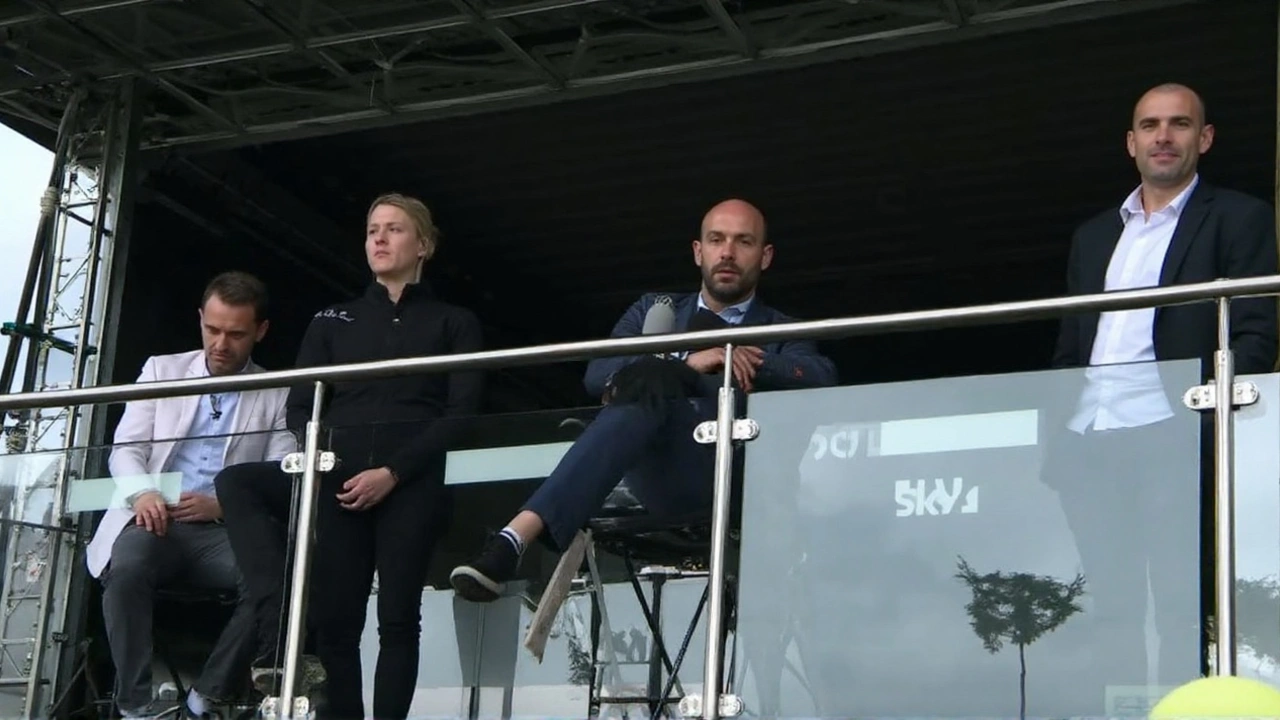What Boyd said—and why it hit a nerve
“Drive him to the airport.” Six words from Kris Boyd, and Glasgow lit up. The former Rangers striker didn’t dance around it. He believes a current player has let the club down and should go now. The message landed on Aug. 25, 2025, and within hours it was everywhere—clip shows, phone-ins, social feeds. You could feel the split: some nodding along, others asking if the blast was fair or just heat-of-the-moment rage.
Boyd’s reputation makes this different. He isn’t a fringe voice trying to trend. He’s the Scottish top flight’s record scorer of the modern era and a player who lived the pressure at Ibrox. When he questions commitment, fans listen. When he says it’s time to go, the dressing room hears the echo, too.
He didn’t mince the core point. Standards at Rangers are non‑negotiable. If a player’s performance or behavior crosses a line—missed cues, poor discipline, or the look of someone with one eye on a move—there’s little patience in Govan. That’s the subtext to Boyd’s demand. It’s not just about a bad night or a single mistake. It’s about trust. Once a supporter base thinks a player isn’t fully in, the noise turns fast and loud.
The timing amplifies it. Late August is decisive. The transfer window is open, squads are still settling, and the season’s early rhythm is forming. It’s when clubs choose whether to double down on a player or cut losses. A pundit’s call to “drive him to the airport” in this window isn’t just a soundbite. It’s a push toward action while it’s still possible.
Inside any elite dressing room, the calculus is simple. Does this player help win the next match? If the answer is muddied by questions about attitude, the staff has to decide—bench, fine, move on, or rehabilitate. Boyd’s view leaves little room for option four.
Why the Daniel Cousin comparison matters
Boyd didn’t pick Daniel Cousin as a throwaway name. The forward embodied a certain kind of flashpoint era at Ibrox. Talented, yes. But his time was marked by turbulence: a mid-season push for a move to England that ran into FIFA rules, frustration on the pitch, and a high-profile dismissal in a big game that hardened opinion among fans. The arc felt familiar to anyone who’s watched a promising chapter sour fast.
That’s the weight of the comparison. Cousin’s story at Rangers is a shorthand for three things supporters hate: wavering commitment, ill-timed controversy, and avoidable chaos in key matches. Linking a current player to that pattern isn’t just criticism—it’s a red flag about culture and focus.
There’s also the transfer angle. Cousin’s saga reminded the club what mid-season agitation does to a squad. It throws energy off. It creates mini-camps in the dressing room—those who trust the player, those who are done with him. When results wobble, those fault lines show up in basic things: pressing triggers, tracking runners, the sharpness of a final pass. Boyd’s point lands there. If someone’s head isn’t right, everyone pays for it on the pitch.
So what happens now? The club has options, and none are perfect. Move the player on quickly and you reduce noise, but you risk taking a short price late in the window. Keep him, and you back your culture to absorb the shock, but you also carry the storm through September. Park him from the matchday squad, and you make a statement—but you weaken depth while you wait.
Supporters mirror that dilemma. Some want clean breaks. Others want second chances. In Glasgow, second chances tend to come with a performance clause: show up, put in a shift, and repair the trust with tackles and goals. No speeches, no Instagram captions—just graft.
Boyd has lived that cycle himself. He’s had lean spells and comebacks at Ibrox. That lived experience explains his blunt tone. He’s not talking about a perfect player; he’s talking about minimum standards. Be available. Be disciplined. Be present in the big moments. Anything less feels like a betrayal to a fan base that measures seasons in trophies, not vibes.
There’s a bigger layer here, too: expectations. The club’s identity is built on pressure. Every week carries the same weight as most teams’ cup finals. Pundits talk like that because the calendar does—the next match isn’t just three points, it’s momentum, revenue, and posture in a title race that punishes hesitation. When Boyd reaches for a Cousin comparison, he’s holding up a mirror. This is what happens when the standards slip. Don’t let it spiral.
From the boardroom’s view, the due-diligence list writes itself. Speak with the player and his representatives. Clarify intentions for the window. Align with the manager on non-negotiables: punctuality, training levels, and in-game discipline. If there’s buy-in, set a reset plan with internal benchmarks and a clear timeline. If not, explore exits now, not on deadline day panic.
For the player at the center of this, the route back is simple, if not easy. Own the moment. Cut the noise. Let the football talk—hard running, smart decisions, clean basics. At Ibrox, redemption arcs happen fast when the ball hits the net and the shirt looks heavy again in the right way.
Will the club follow Boyd’s airport plan? That depends on more than a pundit’s barb. It hinges on what the staff sees day to day and what the player really wants. But the conversation Boyd sparked won’t fade quietly. In this city, statements like his have a half-life measured in weeks, not hours.
If nothing else, the message is crystal: standards first. Keep them, and you stay. Drop them, and someone will be waiting by the car with the engine running.
